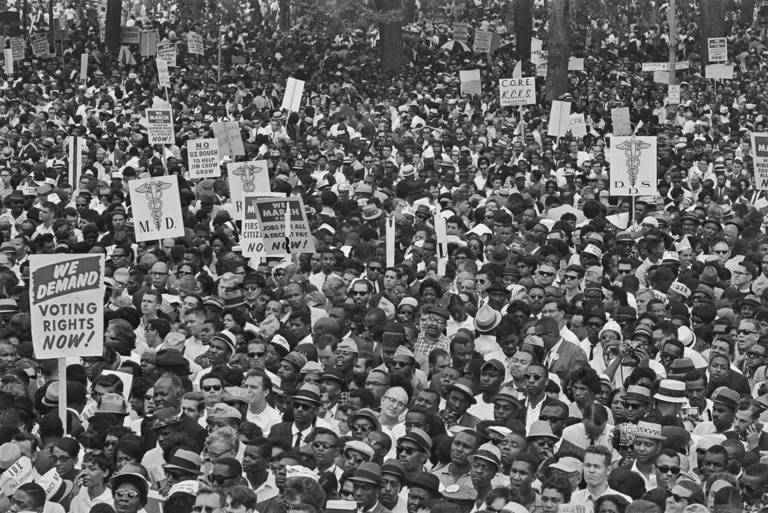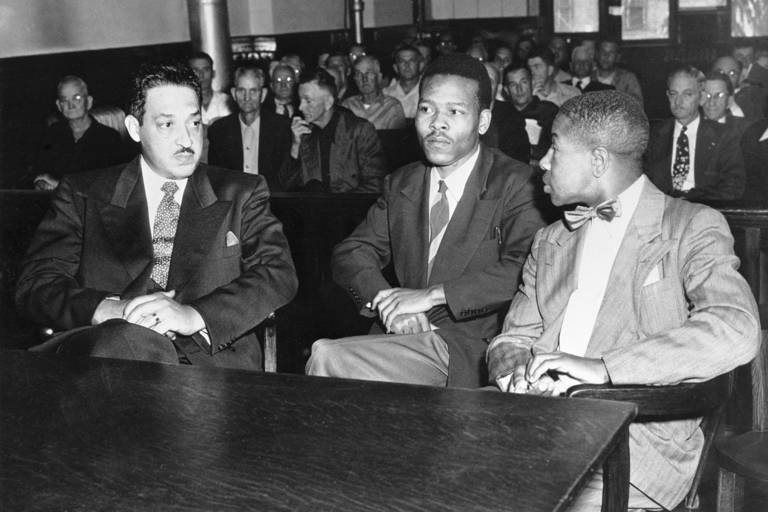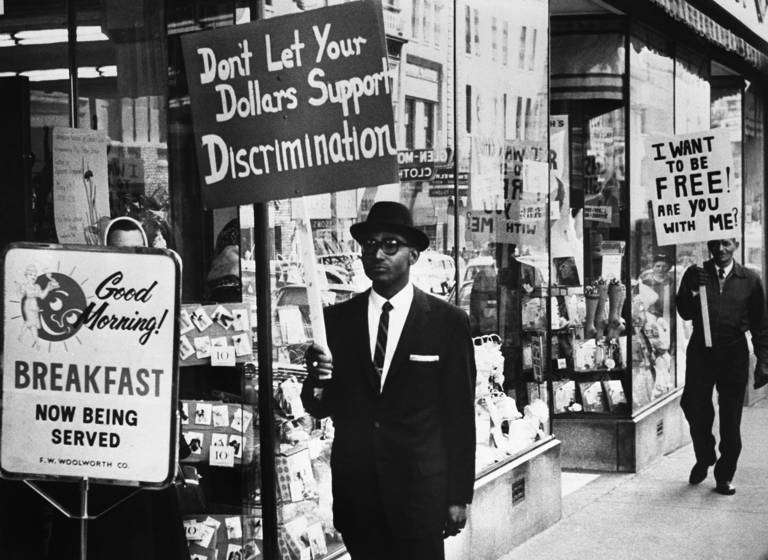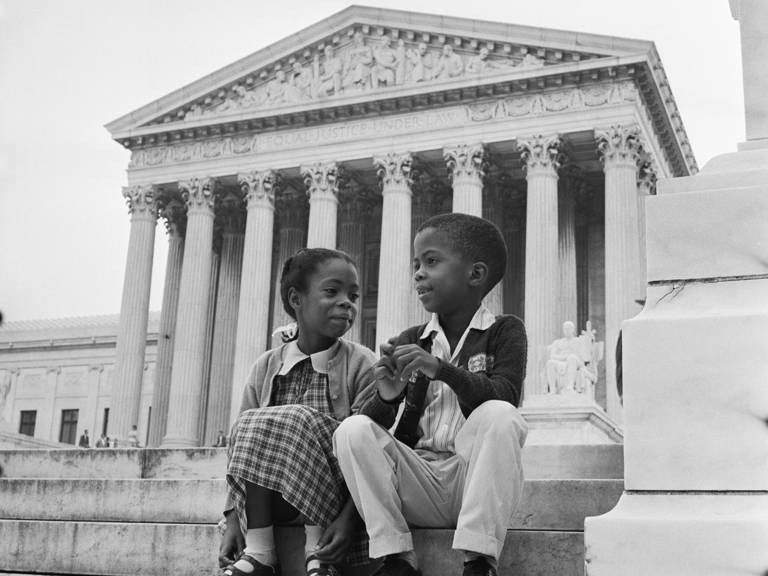LDF’s Impact Areas
Our Work. Our Fight. Our Legacy.

Crowds of demonstrators, some with placards, at the March on Washington for Jobs and Freedom in Washington, D.C., on August 28, 1963. (Photo by Keystone/Hulton Archive/Getty Images)
Promotes
Political Participation
A strong democracy requires an informed electorate participating in the political process. We pursue efforts to support democracy by building, promoting, and protecting Black political power.
Learn more
Explore the journey of civil rights in the United States, from the 1940s to the present day, as we unravel the intricate political landscape that has shaped the battle for equality and justice.

Walter Lee Irvin (center) speaks with his attorneys, Thurgood Marshall (left) and Paul C. Perkins Jr. (right) during his trial for rape in Ocala, Florida, on February 18, 1952. Irvin, one of four Black people charged with kidnapping and raping a young Florida housewife, was sentenced to die in the electric chair.
Fights for
Criminal Justice
Systemic bias and discrimination have played significant roles in maintaining racial disparities in America’s criminal legal system. We work to end the oppression, control, and dehumanization of people of color across the criminal legal system and to advance a new vision for the future of justice and safety that affirms everyone’s humanity.
Learn more
Explore the criminal legal system’s impact on civil rights, through landmark cases and essential movements that continue to drive the pursuit of fairness and justice within the legal system.

Picketers demanding an end to lunch counter segregation march outside a Woolworth store in Lynchburg, Virginia. (Photo by Bettmann Archive/Getty Images)
Protects
Economic Justice
Poverty isolates people and communities from opportunity. We advocate for economic security in Black communities by challenging and dismantling racial barriers that have impeded progress and prolonged economic disparities.
Learn more
Explore the pivotal moments and people, from the 1940s to the present day, who challenged the status quo and forged a path toward economic justice.

Children sit in front of the Supreme Court during arguments about the integration Little Rock Schools. (Photo by Bettmann Archive/Getty Images)